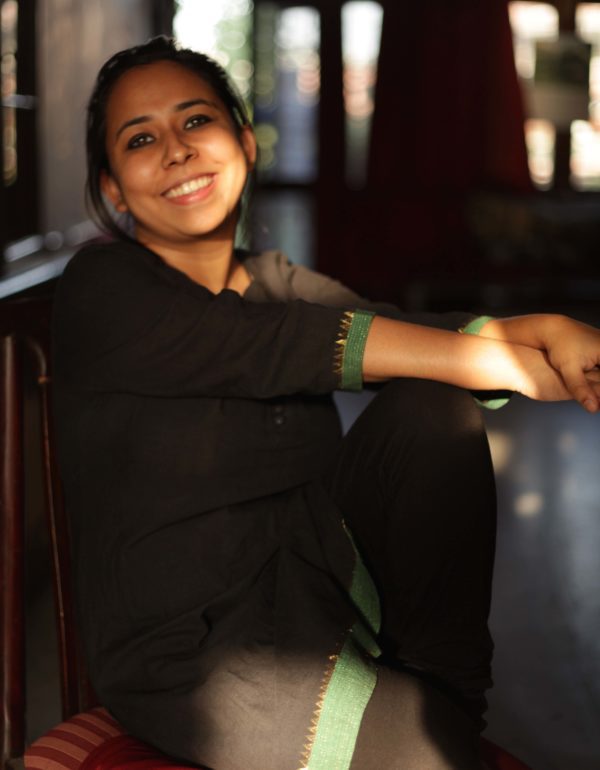 Aman Kaleem’s work is personal. Her best-known film, Shaadi, Sex Aur Parivaar (Marriage, Sex and Family) contains significant autobiographical elements, she says, often drawing from the lived experience of a single woman in India. In the documentary, three very different women describe the social, economic and personal challenges of choosing a life partner in India, in a moving, unflinching piece of reportage.
Aman Kaleem’s work is personal. Her best-known film, Shaadi, Sex Aur Parivaar (Marriage, Sex and Family) contains significant autobiographical elements, she says, often drawing from the lived experience of a single woman in India. In the documentary, three very different women describe the social, economic and personal challenges of choosing a life partner in India, in a moving, unflinching piece of reportage.
“Shaadi, Sex Aur Parivaar came from my anxiety about getting married, and my mother’s disappointment. Despite running my own company, my entire being was reduced to that. So l processed it by making a film about it.”
Kaleem, 30, is one of the four South Asian artists selected as 2018/19 Visiting Fellows at The Mittal Institute. The program, as with most fellowships across the university, is for those who haven’t yet reached their peak and may benefit from a few months at Harvard.
She is the founder and CEO of the artist collective Kahaani Wale, which creates “alternative narratives through storytelling using powerful visual content on social media platforms”. In her early twenties, she founded and ran a company called Red Stone Films after a short spell in the film industry. “I had decided I wanted to be a filmmaker,” she says. “I didn’t want to make other people’s films.” She now sees herself as an entrepreneur, although she still makes films.
She had only been in Boston a few days when she sat down in The Mittal Institute’s lobby to discuss her work and plans. It is her first time in the US. Originally from Aligarh in the North Indian state of Uttar Pradesh, she now lives 100 miles away in the national capital, whose vivid, tumultuous politics are the ideal landscape for her films.
Her latest work is about India’s culture of street protesting. All sorts of people protest about all sorts of things, from the serious, such as the ongoing issue of destitute farmers’ suicides, to the tragicomic: Kaleem meets a woman who’s travelled hundreds of miles and taken to the streets of Delhi to protest against her long-absconded husband. Another of Kaleem’s characters is an unfortunate man who’s protesting the fact that he was legally declared dead – by mistake, of course – a decade ago.
“It’s truly unique,” she says. “But we’re interested in the culture, not the politics. It is very Indian to believe that change can be created this way. I hope the project expands to a point where I have enough collaborators in South Asia to create a repository of content about street protests.”
She plays some unedited footage. These are deeply personal stories that illuminate much broader social issues, a classic technique of journalism. But she doesn’t see herself as a journalist, because she doesn’t attempt to be objective or impartial. She is – and wants to be – connected to her subjects.
This project is the key to her Harvard plans. As personal as her work already aims to be, she wants it to be even more immersive for the viewer, by exploring the possibilities of virtual and augmented reality technologies. To that end, she will connect with innovators at Harvard and elsewhere in Cambridge, including MIT’s Media Lab, in order for everyone to experience the intensity of a few raucous streets in Delhi.
